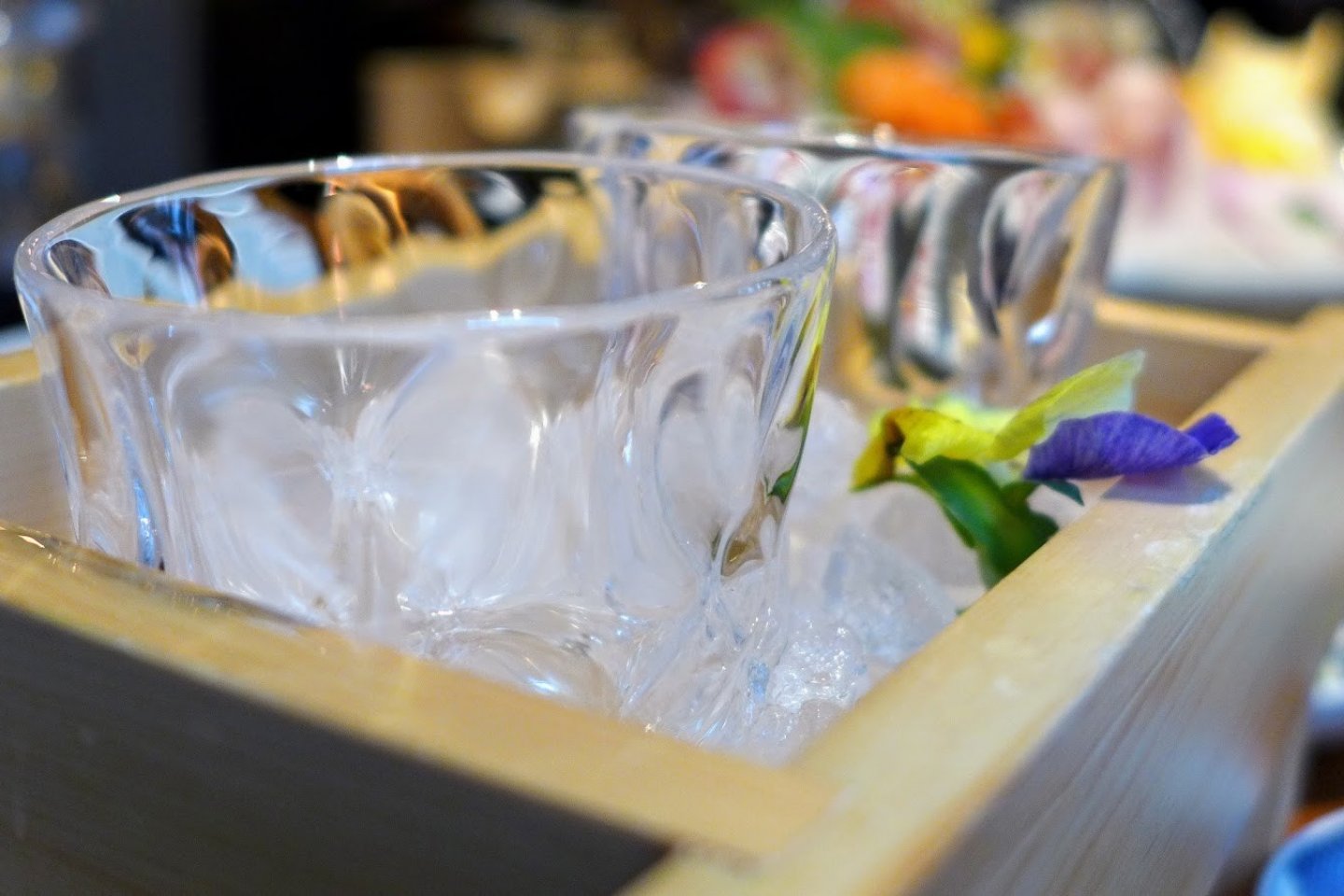Overview
It is said that there are three drinks in every bottle of sake. Hot, warm and cold.
That is to say that even small temperature differences can create subtle variations in the flavour and fragrance of sake, sometimes giving the impression that you are drinking something totally different to what you were drinking before!
When it comes to temperature, it is really a matter of personal taste and there are even ten poetic Japanese names to describe ten different temperatures at which sake can be enjoyed, one for every five-degree increment between zero and fifty-five degrees celsius.
Some examples:
- 5-10 C: Hana-hie. The temperature of cherry blossom season
- 10-15 C: Suzu-hie. The temperature of a cool breeze
- 35-40 C: Hito-hada kan. The temperature of a warm human body

You will find that sake connoisseurs typically enjoy premium ginjo and daiginjo styles chilled to 7-15 degrees celsius, and styles with more umami and savouriness warmed up to 40 degrees, but really, there are no hard rules!
The only thing to bear in mind is to avoid heating and cooling sake to temperature extremes, particularly if you are drinking high-quality sake. In doing so, you destroy the delicate balance of flavour and aroma that the sake brewer worked so hard to create. You may also risk burning yourself!
How should I warm sake?
There is nothing more soul-warming than a good cup of hot sake in cooler months. Warm sake is called “Kanzake”. Traditionally, sake is warmed in a tokkuri, but nowadays many Japanese people will even use a microwave, which perhaps is less ceremonious but very time efficient.

Tokkuri method
A tokkuri is a small decanter sometimes made of terracotta or metal.
After pouring your chosen sake into this vessel, half submerge it into hot water of about 80 degrees celsius in temperature.
2-4 minutes is about the right amount of time for an 180ml tokkuri.
Microwave method
The time required will vary according to the strength of your microwave and it is above all important to note that a microwave will both heat the sake more quickly, but unevenly. Setting the microwave to a medium power setting, therefore, allows you to have more control over the temperature.
After pouring out your sake into a microwaveable bottle (not plastic or metal), cover the mouth of the vessel with cling film.
After 20 seconds, take out the container to swirl it and evenly distribute the heat. Replace it in the microwave and repeat this procedure after another 10-20 seconds, depending on how hot you wish your sake to be.

































